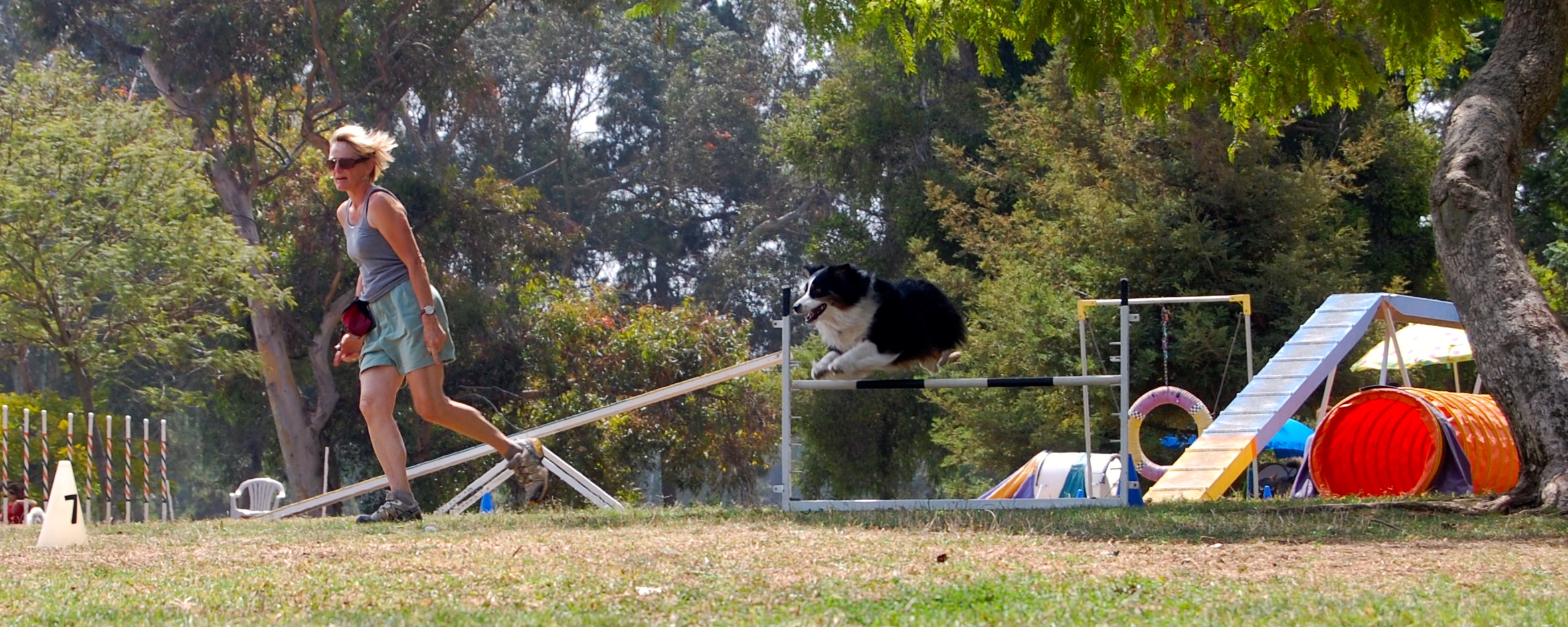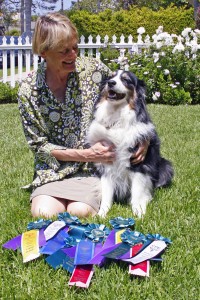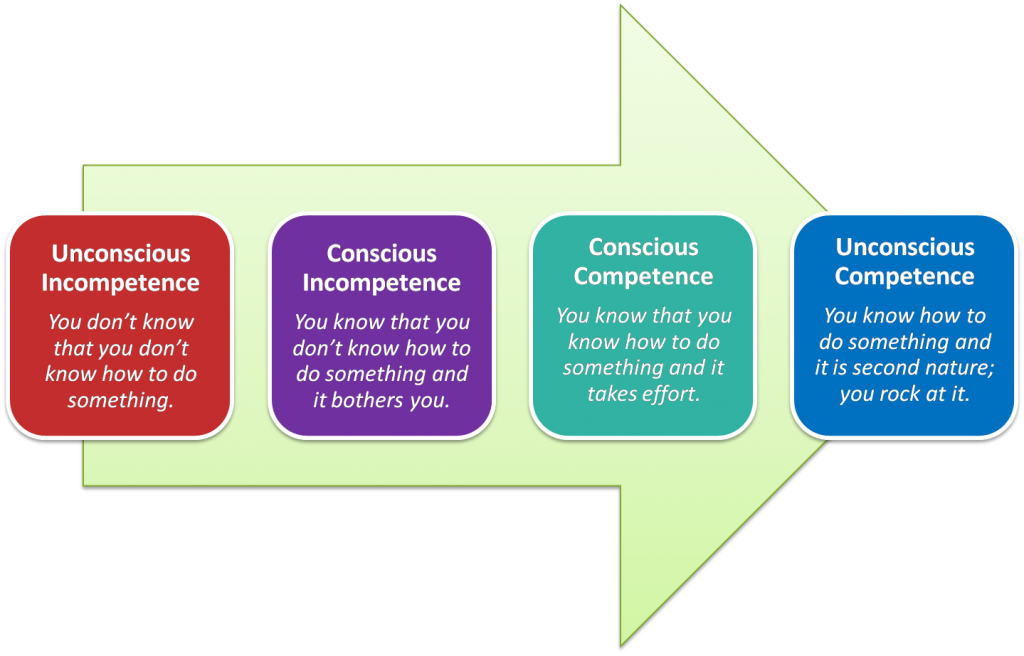When I’m not organizing, I like to play with my dog. By playing, I mean competing in agility, a dog performance sport. The object of dog agility is to complete a sequence of obstacles in the shortest amount of time. The course of jumps, tunnels, and teeter-totters includes turns, changes of direction, and enticing off course obstacles. The handler’s job is to give the dog clear, precisely timed cues so that it can smoothly negotiate the course at speed without hesitation or confusion. When done well, it looks easy, but it is a complex dance of timing and communication with a non-human partner.

Acquiring the skills to run agility at a competitive level is a long, painful process of frustration, elation, despair, hope and feelings of complete incompetence.
Acquiring the skills to become organized can sometimes feel the same way. The good news is that everyone experiences this. No matter what the skill, each of us goes through four stages of competence* when learning a new skill.
The four stages are:
-
Unconscious Incompetence
-
Conscious Incompetence
-
Conscious Competence
-
Unconscious Competence
Many of us get stuck in the first two stages but they are hugely important. Feeling incompetent is uncomfortable and frustrating but to move forward we must push outside our comfort zone. Our impulse is to retreat back or skip one or both stages, but we must work through them in order to achieve competence.
In the first stage, Unconscious Incompetence, we don’t know what we don’t know. To move out of this stage, you need a trainer – an expert – to explain what you need to learn, how to do it and how it will benefit you. When you recognize your deficiencies, your first reaction will be embarrassment. “How could I not know that?!” you’ll say.
At Conscious Incompetence, you know what you must learn but you are struggling. You get frustrated. You become painfully aware of your shortcomings. Resist the urge to quit at this stage.
You start to understand the level of skill you need, but you don’t know how to get there. You need an expert to explain the concepts and demonstrate whatever it is over and over and over until you understand. You may have read an organizing book about how to get rid of clutter, but when you can’t jam one more thing into the hall closet, you’re stumped about how to begin.
You must never be embarrassed about not knowing something. Ask yourself honestly, “Do I really understand this?” If not, go back to your expert and ask for help until it gels.
To move forward, you need to embrace your incompetence and think, “Yes! this is the first step of learning!” View your incompetence as a positive challenge and make a commitment to practice and learn.
Conscious Competence comes when you feel you’re able to do what you wanted – to organize those photos into albums, to keep papers from piling up on your desk – but you have to think about every step in the process. It’s not yet second nature and you need to keep practicing. There will be backsliding, but as you add skills learning will be easier.
Unconscious Competence is performing skills effortlessly. You don’t even think about where to file the bills, how to manage your email, or how to keep yourself on task and on schedule all the time. You’ve developed new habits that feel so natural you can perform them unconsciously.
Until, of course, you encounter that new app you don’t understand and you start the process all over again!

There are many well-written articles about the four stages of learning. The simplest explanation I’ve found is on the website Examined Existence. Gordon Training International, where the model was developed, explains the process in a business context.
*While said to be patterned after the work of Abraham Maslow, it is best known as being introduced by Noel Burch in the 1970s while he was an employee of Gordon Training International.
